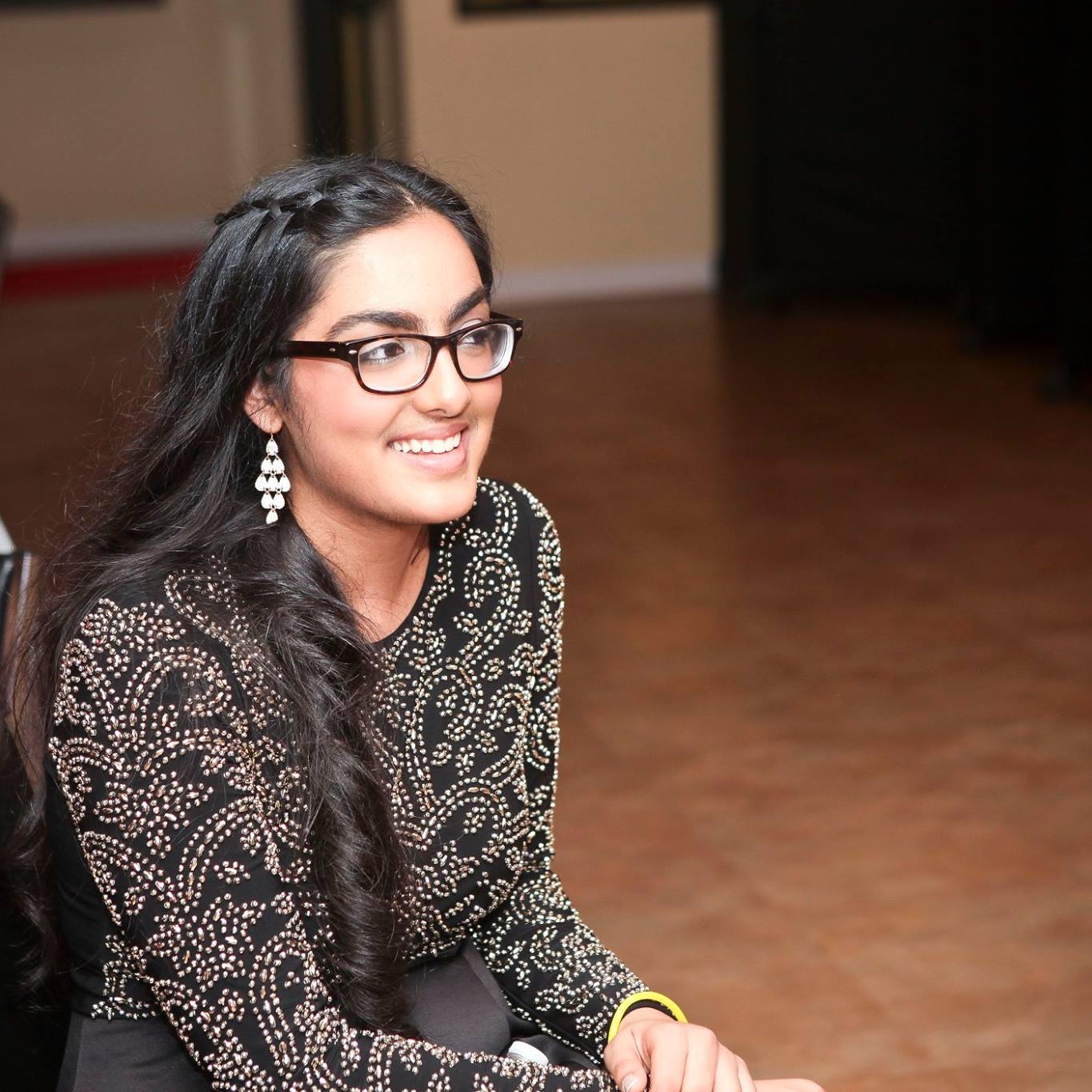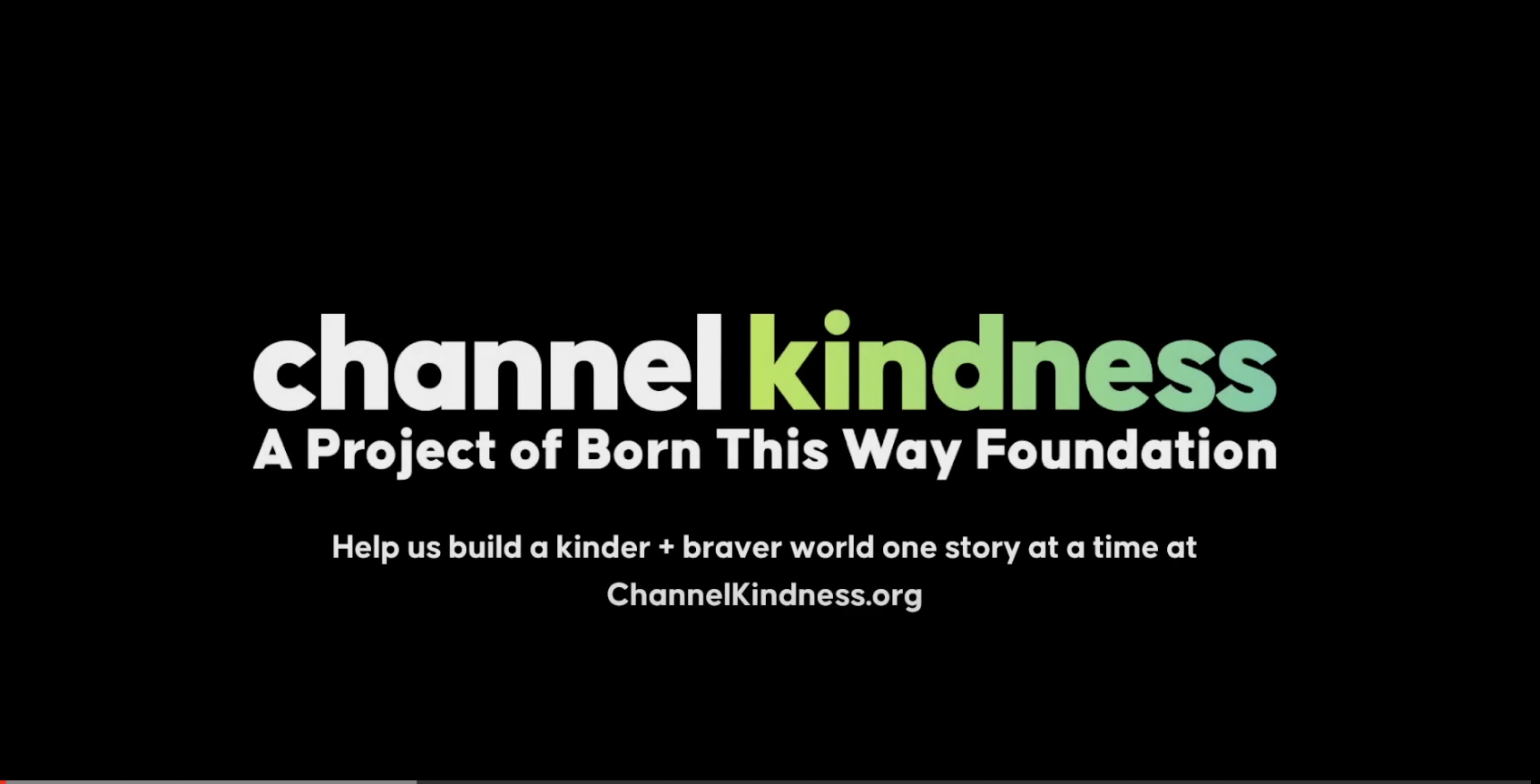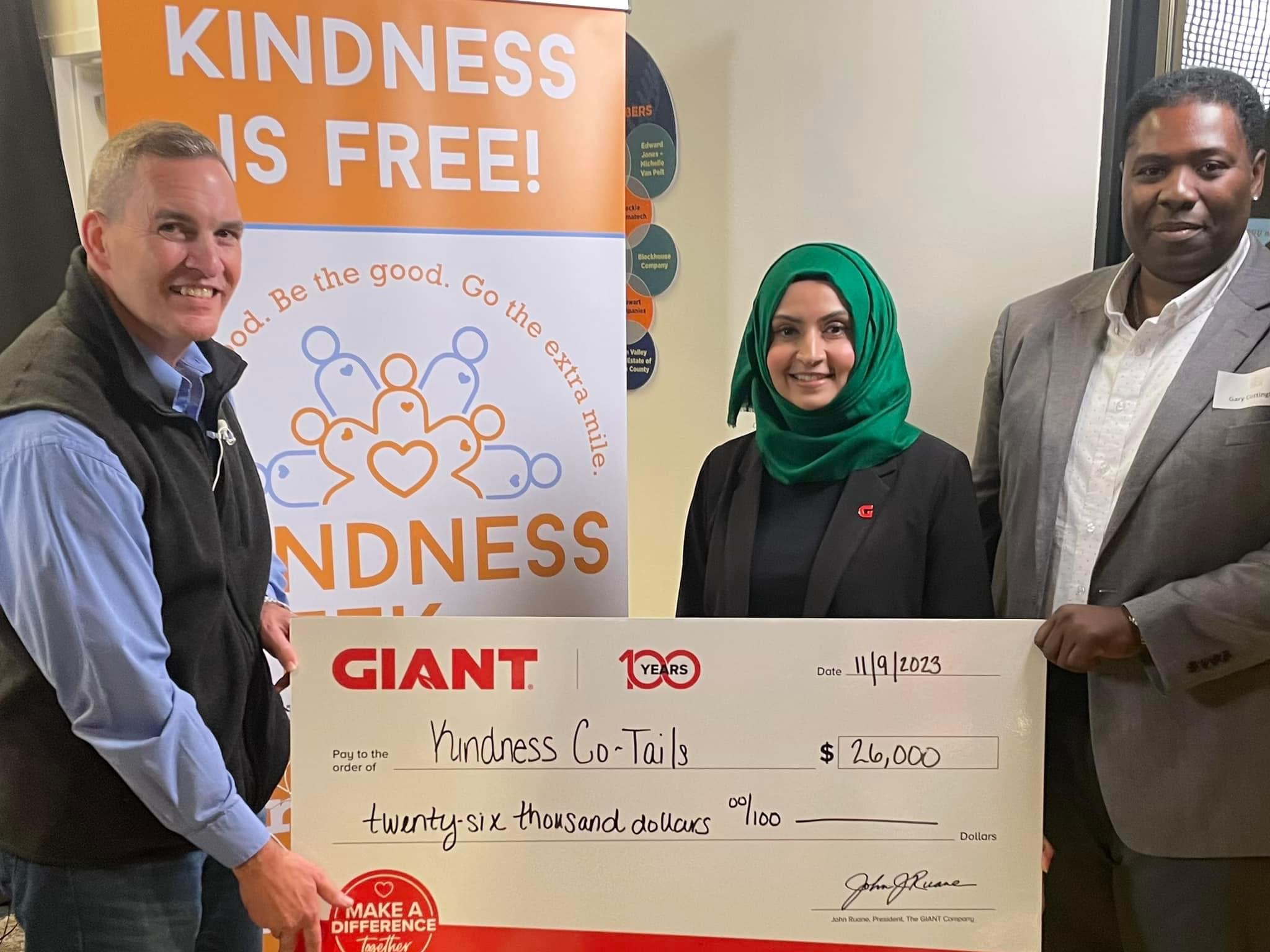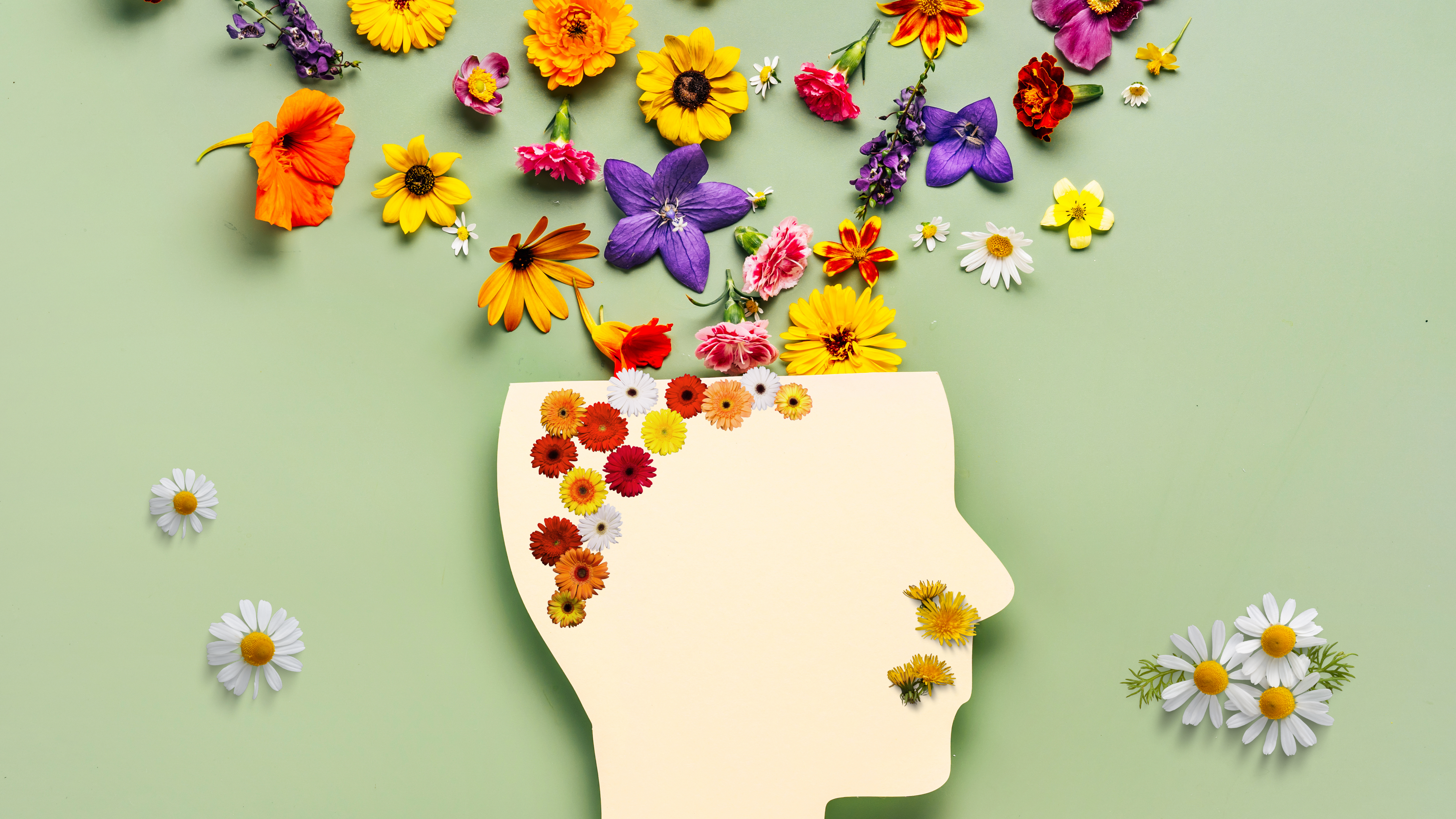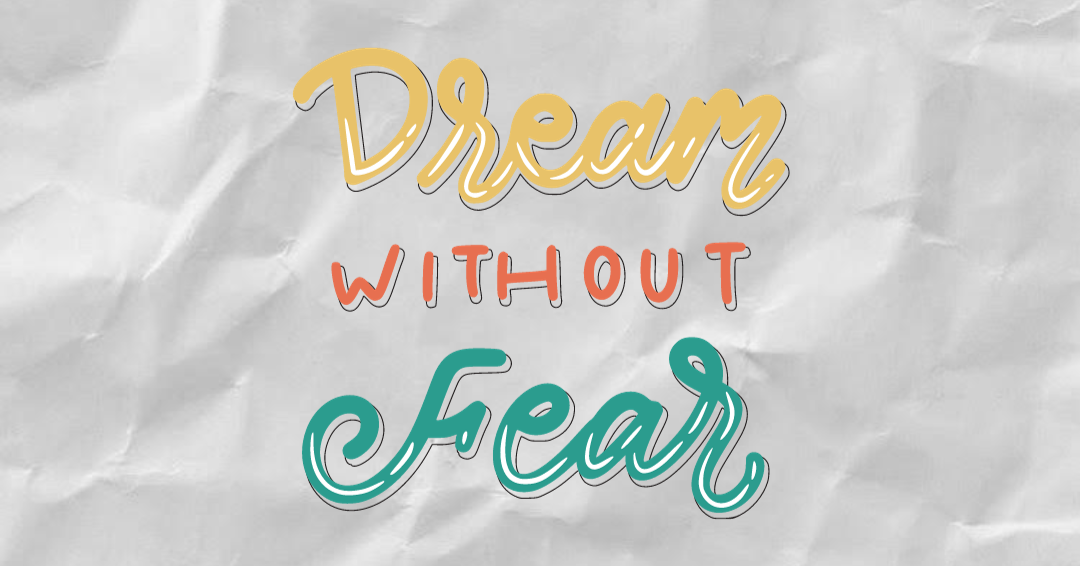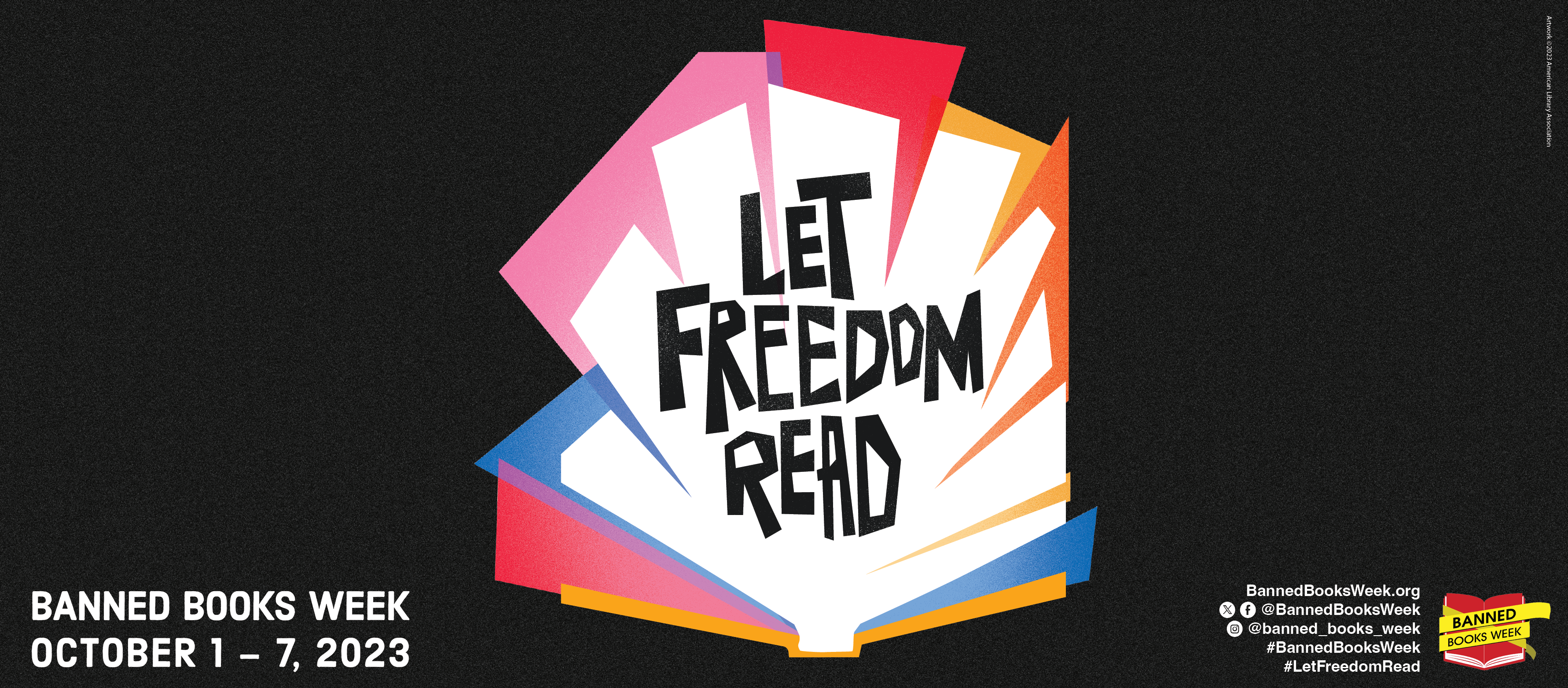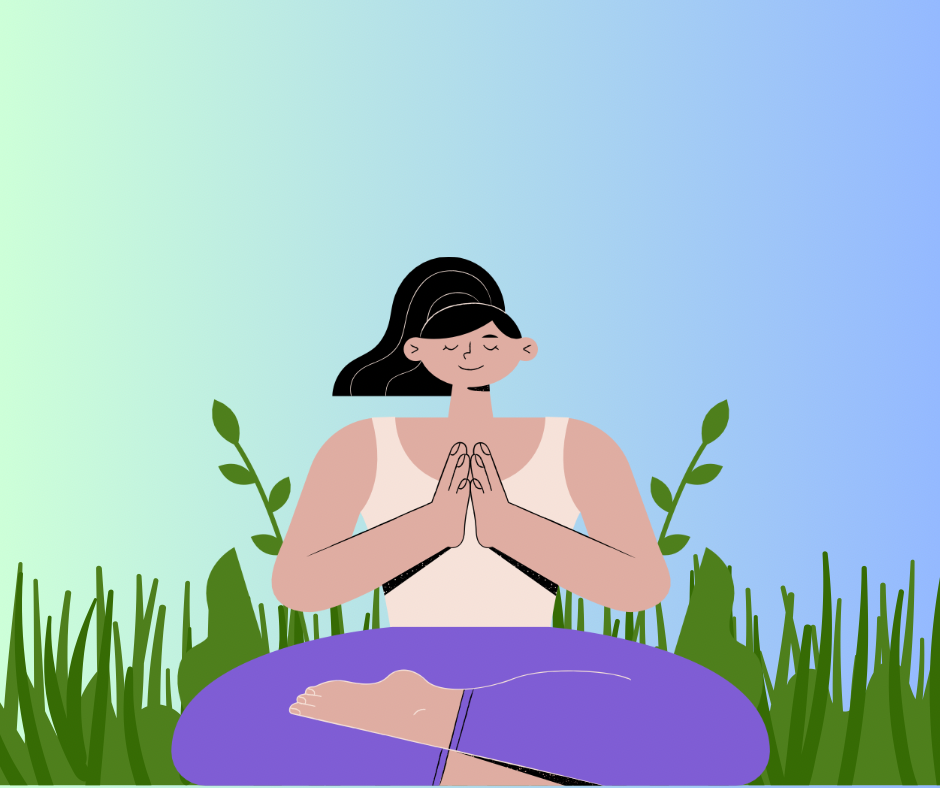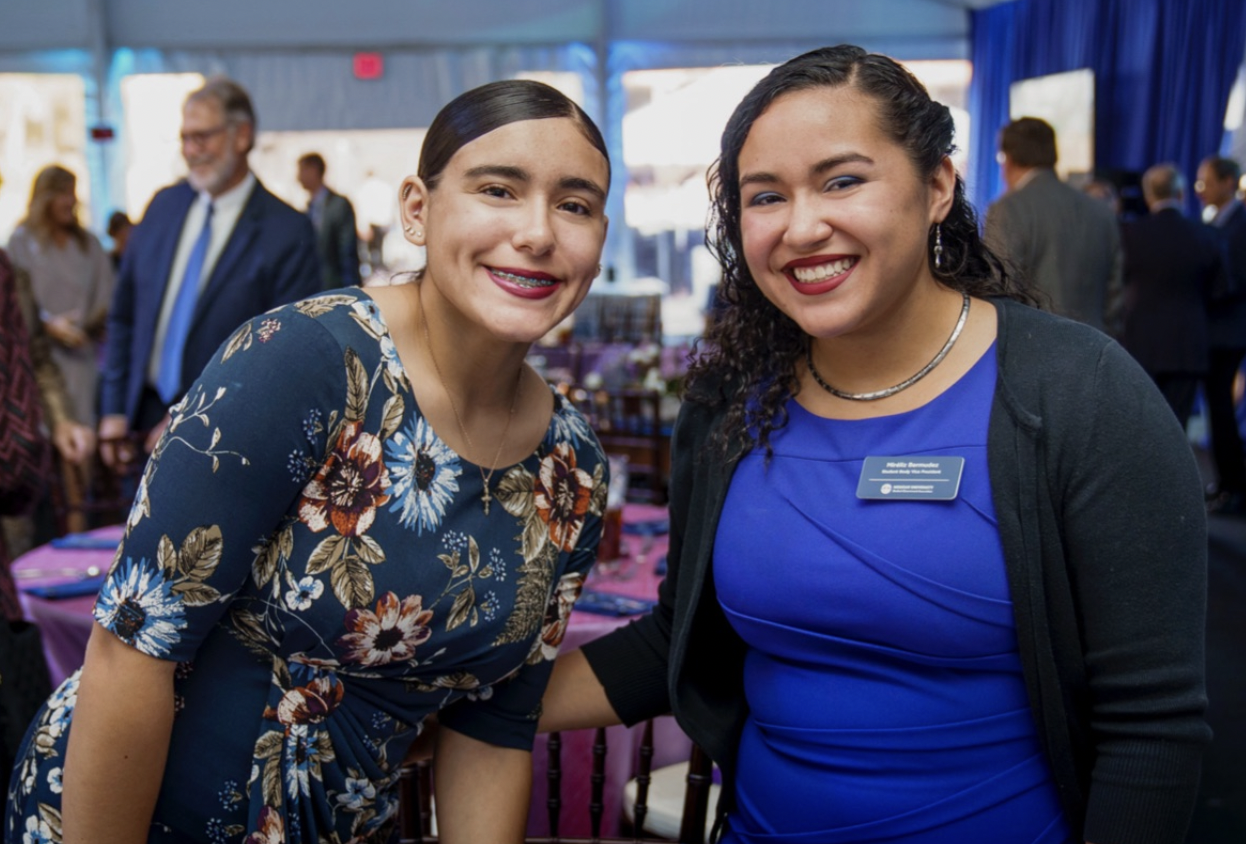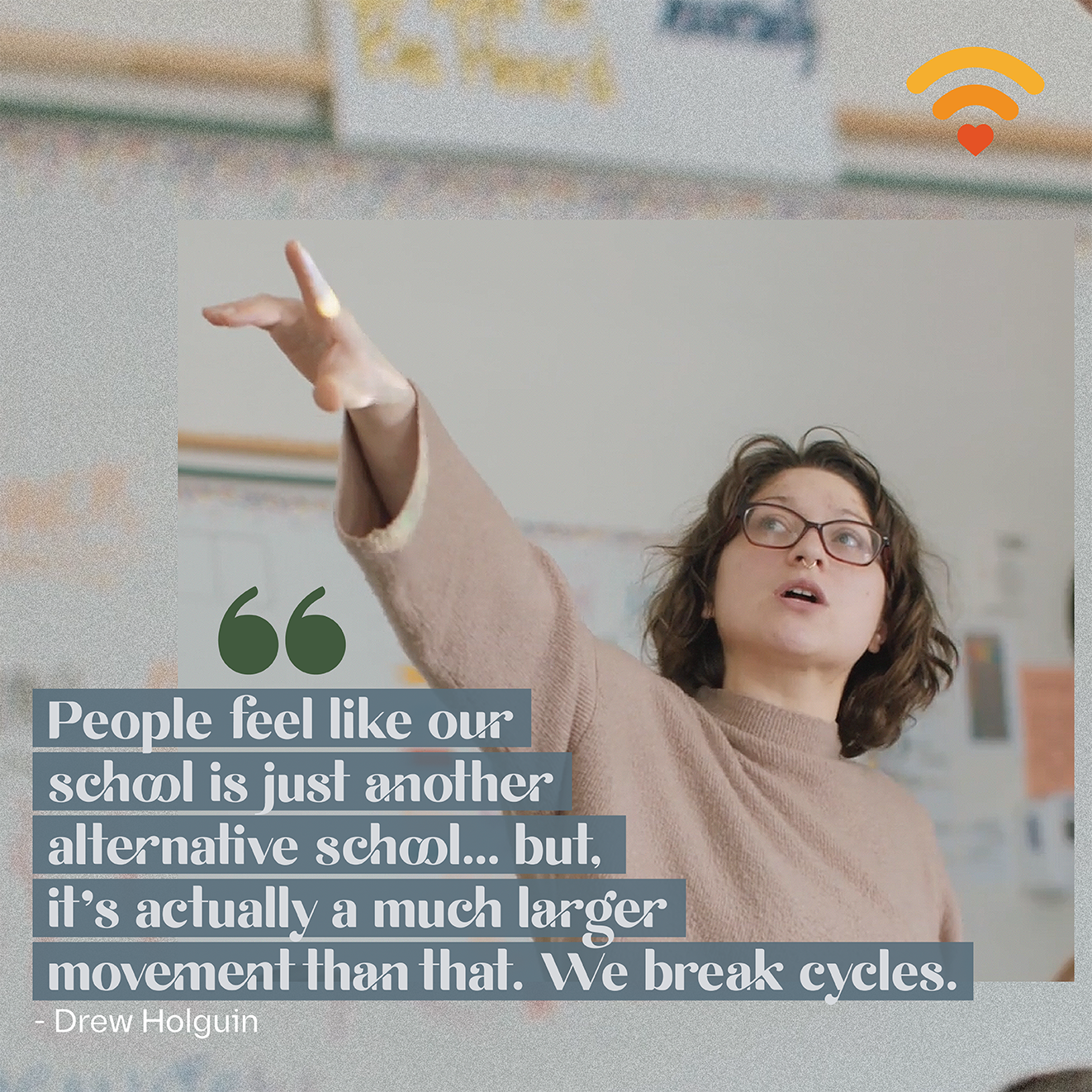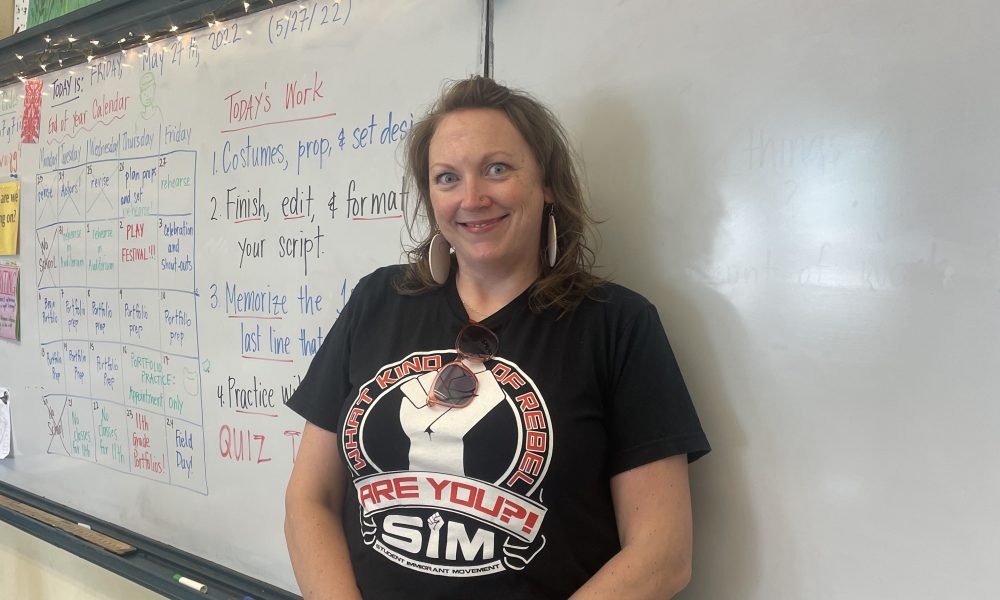Today’s Channel Kindness piece discusses suicidal ideation. If you or someone you know is struggling with suicidal thoughts, please seek help immediately. Text HOME to 741741 to talk to a trained crisis counselor today at Crisis Text Line or call 1-800-273-8255 for the National Suicide Prevention Hotline.
I recently had the honor of talking to Ali from Find Your Anchor and Paige from Notes of Hope. Both Ali and Paige spearhead organizations that are grounded in suicide prevention and provided encouragement and support to folks who are struggling with their mental health. Together, we discussed how we can destigmatize mental health and how to lean into our peers for support. Though different organizations, their message in the below podcast s the same – your life matters + we need you here, friend.
Check out our conversation here (and find the full transcript copied below!):
Transcript:
Hana Mangat
Hi, everyone. My name is Hana Mangat. I am the Channel Kindness intern and I’m so excited to welcome Paige Hunter and Ali Borowsky to Channel Kindness Radio. In order to get started, could you both please introduce yourselves to the community? Let’s start with Ali.
Ali Borowsky
Hi Hana, thank you for having me. My name is Ali Borowsky. I am the founder and CEO of Find Your Anchor, born and raised in Philly, migrated my way west to Southern California by way of Chicago. Graphic Designer, rugby player, and I enjoy long walks down art store aisles.
Hana Mangat
Lovely, I also forgot to mention that I use she/her pronouns. Ali + Paige, if you’re comfortable sharing your pronouns
Ali Borowsky
Absolutely, Ali Borowsky, she/her.
Hana Mangat
Perfect, thank you. Paige, do you want to go ahead and introduce yourself to the community.
Paige Hunter
So I’m Paige Hunter, I’m 21. I’m from Sunderland in the UK, and in 2018, I started a campaign called Notes of Hope. And I enjoy, absolutely enjoy doing art. I do it nearly every day. It’s just something that I really enjoy. And I just love being out with my dogs.
Hana Mangat
I love that. I also love being out with my dogs, especially during quarantine. So I wanted to talk to both of you because you’ve both channeled your own struggles with mental health to create platforms to help others navigate what they’re going through. Paige, you’ve led an incredible initiative called Notes of Hope. And Ali, you’re the founder of Find Your Anchor, can you tell me a little bit more about the work you do and how you found the courage to do it? Maybe we can start with Paige.
Paige Hunter
Yeah, so in 2018, I was going through a really, really dark patch, and I was suffering really bad with my mental health. And I was having post-traumatic stress so often. I was having flashbacks and I was dealing with depression. And through ongoing abuse that I was going through. So the way, the way I was dealing with it, I was going to the bridge a lot. And I didn’t really see any hope. I didn’t want to be alive anymore. The pain was just too much. And in 2018, I went to the bridge. And I was standing on the edge. And two males got out the car. And they told me that I was worth so much more than what I wanted to do. And it instantly changed my mind because I felt like someone cares. So then a few days later, I started doing these little notes called Notes of Hope. And I just wrote what I would love to have heard if I was on the bridge and stuff that I think would help other people. And initially, it was only just to help one person but it’s carried on helping lords and it went all the way around the world. And it’s just amazing.
Hana Mangat
Wow. Thank you so much for sharing your story and for doing what you do. And it takes so much courage to be able to speak openly about your own struggles, let alone help other people. And I just am so grateful for the work that you do.
Paige Hunter
I’m just happy that I was able to help someone and having permanent notes on the bridge, it means it’s going to help more people and it’s just an amazing feeling.
Hana Mangat
And it’s an amazing effort. Ali, I’d love to have you jump in and tell us a little bit about how you found the courage to you know, start Find Your Anchor and if anything that Paige is saying resonates about you know, just getting people to know that they’re cared for and loved. How did you get into your work? And how do you find the courage to continue it?
Paige Hunter
Yeah, I wish you could see me vigorously nodding my head over here. Everything you’re saying Paige, I feel like are things I’ve said myself and I am totally with you on all of that. I’ve survived multiple attempts and really, Find Your Anchor was born out of just like my personal experience navigating the mental health world. Everything really just felt so corporate and clinical and sterile and just cold like nothing really resonated with me. I just felt like a like a barcode like, just a number. And so I was like I’m surely not alone in feeling this way. So I decided to create something that I wish I would have had navigating that experience or just something to sit with, when I was struggling. My like core belief in like the height of my struggling was that I didn’t think anyone would care. I didn’t think I would be missed and I couldn’t feel that love. surrounding me, so I thought if I could create something that showed you that strangers care about you, then maybe it won’t be so hard to believe that your friends and family do as well. So we’re all about like building this network and community of strangers who care and it sounds like that’s what you’re doing to Paige like, just this, this personal touch and really the power of the little things. And the power of the little things is really what sparked this idea of anchors in our lives, and the little joys that we experienced or have, and when you’re struggling, just surrounding yourself with those little joys. And some of my anchors are like lazy Sundays. It’s you know, watching reruns of Friends, pink Starburst, and steak tacos. Like they’re not, they’re not huge, you know, but when I’m having a terrible day, you know, I throw on some Friends and you know, make myself some tacos. And it’s just a little bit, you know, just to get through the night. So just, I’m totally resonating with what with what you’re saying. And just trying to put more love into the world, whoever stumbles on it, or finds it.
Hana Mangat: That’s absolutely beautiful, Ali. Thank you so much for sharing. Both you and Paige just, you know, finding the effort and the courage to put love into the world is a brave act. And it’s something that’s making the world kinder, and just as a young person who’s also just seen so many of my loved ones and struggled myself with my own mental health, I’m so grateful, like for your efforts. Something I would love to know more about Ali, you were talking about anchors, and I love the ones that you shared, they’re definitely super relatable. And something that’s really interesting about Find Your Anchor is that it’s very tangible, that you hold the box in your hands. And that’s so important sometimes for grounding us. So do you mind sharing a little bit more about how you came up with the small blue boxes?
Ali Borowsky
Definitely, I’m a graphic designer. So in a digital world, I’m, like print– print is still here. So I’ve always been one for, I would much prefer to have a book in my hands than reading it on a Kindle. Like the power of, of just the real, the tangible. So that was definitely something in my thoughts with it, but it was really the box is meant to feel like a conversation with a friend. It’s almost like someone kind of walking you through the box. There’s a deck of cards, 52 plus reasons to live inside with a ton of just anchor inspiration and ideas. There’s a letter to the hopeless, the worn out and the disenchanted. And it’s you know, just a message of love and encouragement and support. There’s posters, list of resources, a bracelet, sticker, a whole bunch of other good vibes of our printed, Please Stay pledge is now in every box. And we encourage people to keep the box as long as they’d like. But when they’re in a better space to add things to it, things that helped them or any of their anchors, and then launch it for someone else in need. Almost like a like a pay it forward sort of thing.
Paige, with with the handwritten and I also write the notes in the box. I don’t know about you, but there’s something really powerful whenever I would receive something handwritten, I would immediately feel the back of the paper to feel the indent. If it was really like if it was just a printed hand written font, or if someone actually like pressed on this paper. And to feel that especially when I was struggling, just some sort of connection to another person. How little that is to just feel the indent of them on the paper was was huge for me.
Hana Mangat
Yeah, there’s a special personal touch that you can feel the kindness and love of another person with that handwritten note. I wanted to also ask you both because I think that in the world of mental health and any work that we really do as a labor of love, if we’re lucky, we get to have these moments where we feel like “oh, my God, like this is what makes my work worth it.” I was hoping you could share some of that hope with our community and tell us about a time when you realized the impact of the work that you do?
Paige Hunter
Yeah. So when I started the notes on the bridge, I think it was about a week after and I started getting a lot of messages on Facebook, and they were anonymous messages, so I didn’t know who they were. They just contacted a page on Facebook, who would then post their story and then it was almost a paragraph and they took pictures of my notes, and they said that if the notes weren’t out, that they wouldn’t be here anymore. And that family would have lost someone. And it really touched us because I thought these are having a massive impact on people. And it was, it was lovely just to be able to help someone.
Hana Mangat
Right. And to know that you may have saved a life or multiple lives.
Paige Hunter
Yeah.
Hana Mangat
Yeah. Ali, have you had similar moments?
Ali Borowsky
Definitely, the resounding word is trust in the work that I do. And Paige, you may feel similarly but it’s just like writing the note or launching the box and just trusting that whoever needs to see it or you know, find the box finds it. And once I launch the box into the world, I can’t control who finds it, just trusting that it gets to where it needs to be. And the first box I launched in the Gail Borden library in Elgin, Illinois, I like agonized over where to launch this box. And, you know, should it be on this shelf, I knew it was going to be in the Self Help section of the library. But when it came to the shelf, I put it on, I mean, I stood there, I replaced, moved it up a shelf, I’m like, is it eye level, most people are taller than me. So it should probably be on a shelf higher. You know, I don’t like the color of these books. Maybe it should be next to these. And this just like, vibe of just like trust just came over me like, just trust. And so I just I kind of, I walked away, you know, I wanted to like, turn around and “Did anyone find it yet?” but just walked and left. And a week later, a week must be the sweet spot. A week later, I heard back, I got an email from a girl that said you must have saved hundreds of lives by now. When I opened the box, I just started crying. You know, thank you for this incredible gift. And it was the first box you know, there weren’t hundreds of boxes in the world. And that just one one life touched, one life saved is worth all of this time, energy, everything. So long answer yes.
Hana Mangat
I love that. I think that it’s just such evidence that like, kindness goes such a long way, right? That you never know what coming across a blue box or finding a note when you really really need it. Like, we don’t know how powerful our kindness can be sometimes. And if it’s saving these lives, like what a beautiful effort that is. Something that I also love about the work that you both do is that they’re grassroots movements. You started these within your own communities, and they’ve grown so beautifully. I imagine because you’re both mental health advocates, you’ve thought about what changes we might need from like a larger level, or a macro level to build a kinder and braver world. So if you don’t mind sharing, what changes do you envision or think about at the systemic level for suicide prevention, to destigmatize mental health? I’m just curious to hear from you both because it sounds like you think about this work with such compassion that I’d love to know what larger systems might be at play that you think about.
Ali Borowsky
I think first of all, more conversations like these, they are invaluable. And I think you know, Born This Way and Channel Kindness does an amazing job at at elevating, you know, real voices. So I think that is monumental in changing how the system views mental health and just all of this. But really adding some color to mental health resources would be phenomenal. Like it just being more approachable and less sterile. Just so many white pamphlets with 1-800 numbers like that’s not that’s not our world right now. Like it’s in like a Tik Tok world, like a cold white one sided you know, word doc is not is not enough to really make that impact and resonate. So I definitely like embracing creativity and that personal touch, just even beside you know, printing front and back color. Like it’s just that personal touch. When someone is struggling, you know, I can only speak for me, but someone’s saying my name was just you hold on to the little things I hold on to the little things. So really just, I think remembering the power of the little things and embracing them.
Hana Mangat
Definitely, I agree. Paige, do you have any thoughts on like a larger systemic changes or a vision for what you’d like to see?
Paige Hunter
I believe that mental health should be taught in schools through education, because lots of people think that mental health doesn’t affect kids, when in fact it does. Because I was going through abuse at a young age and I didn’t really know what was happening. And I didn’t feel like anyone understood me. And so I think if I got that opportunity, where I was taught about why I was feeling the way I was feeling, I wouldn’t have acted in the way I was acting. I think people just need to tell kids that it’s okay not to be okay.
Hana Mangat
Completely, I agree. I think having the tools to even name what you’re feeling what you’re experiencing to know that you’re not alone and experiencing it is so powerful, and it would help so many young people avoid so much of the loneliness and pain that can come with mental illness or just general struggles with mental health. And on that note, what advice would you give to somebody that was struggling with their mental health?
Ali Borowsky
I can happen I would say, one thing that’s really stuck with me is a pain shared as a pain halved. And, you know, for me, it was, I always felt like I was gonna burden somebody by sharing it, but it’s the weight and to be able to get that off and, you know, have someone else hold that with you, is so powerful. And you know, in the meantime, surrounding yourself with the little joys in your life to get you through, I recommend creating a list of things that bring you joy, so that when you need it, you can easily access them.
Hana Mangat
I love that. Paige, do you want to add anything to that?
Paige Hunter
Yeah, so it’s pretty much the same as Ali. I felt like I was a burden to everyone. So I wouldn’t share how I was feeling. I’m now in recovery and started opening up with how I’m feeling and why I’m feeling the way I’m feeling. And being able to share that with people, it’s just helped me a lot. I think just being able to talk openly is a massive thing.
Hana Mangat
You’re right, I couldn’t share myself fully with my friends that I just was never fully present. I was always thinking about my anxiety or it was too hard for me to be fully present if I couldn’t fully share what was going on with me and it’s always helpful to have that. Just to conclude our community is one that is interactive and lovely and supporters of mental health advocacy. So could you please share, how can our listeners support the work that you do?
Ali Borowsky
Yeah, you know, social media, if you want to stay up to date on the things we’re doing, we’re @FindYourAnchorBox on Instagram. If you’re interested in bringing boxes to your community or school, reach out, our website is findyouranchor.us but as always, you know, if you are struggling and need a box, please come and request one and we’ll send one to you no questions asked. And also sign the Please Stay pledge. We would love to share Please Stay with the world. And it’s pleasestay.us
Hana Mangat
Thank you. Thank you so much. Paige, how can we support your work?
Ali Borowsky
I have a Facebook called Step Back. Really, just to maybe pick up a pen, write a note, if you feel like, go and put somewhere where somebody can see it and maybe it will just help from someone
Hana Mangat
I just want to say thank you again to both of you for the love that you’ve put out in the world and the kindness that you carry and all of your work. Our listeners and I are so excited to support your work and thank you just again for channeling kindness in your everyday lives and for working to make this a kinder and braver world.
Ali Borowsky
Thank you Hana. Thanks Paige.
Paige Hunter
Thank You.




